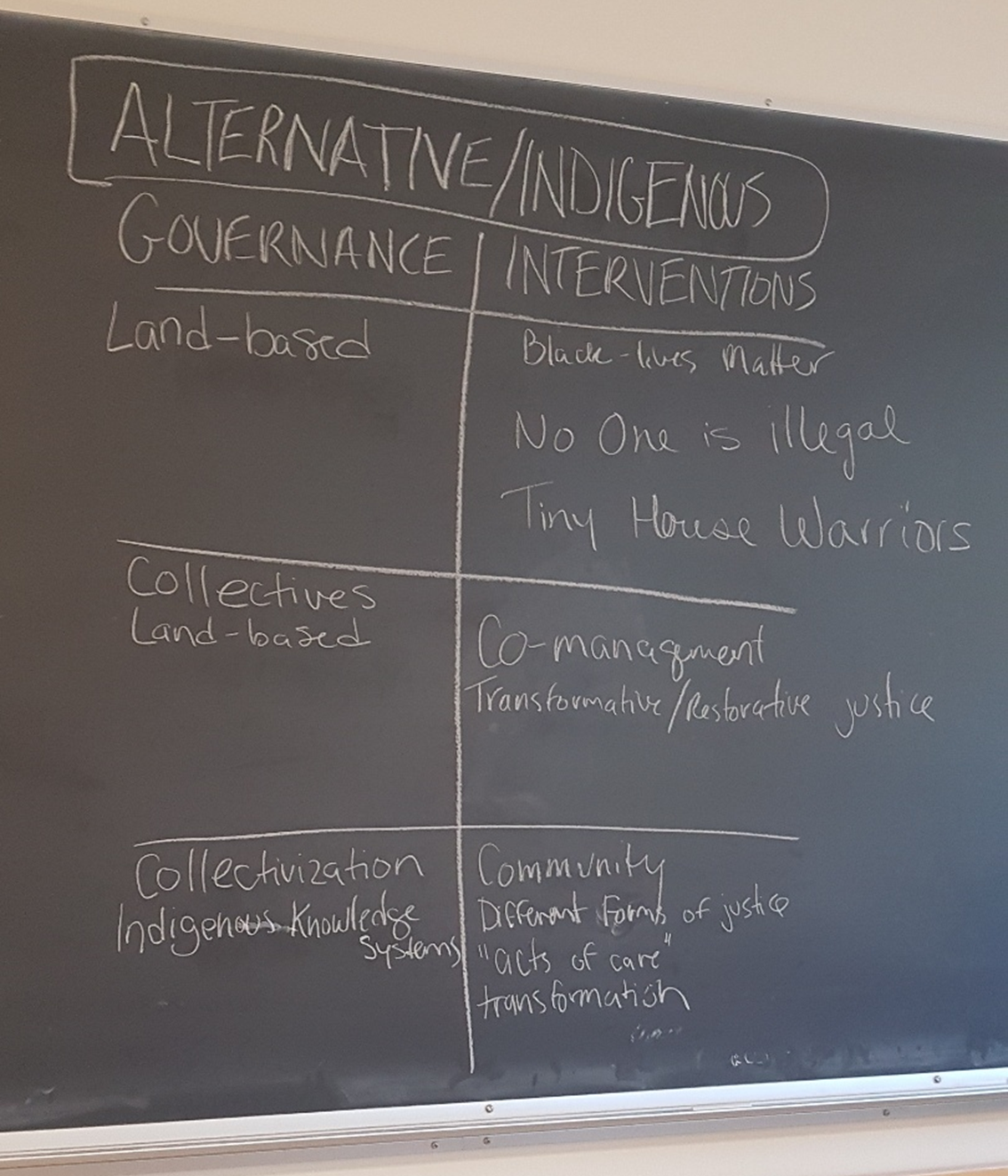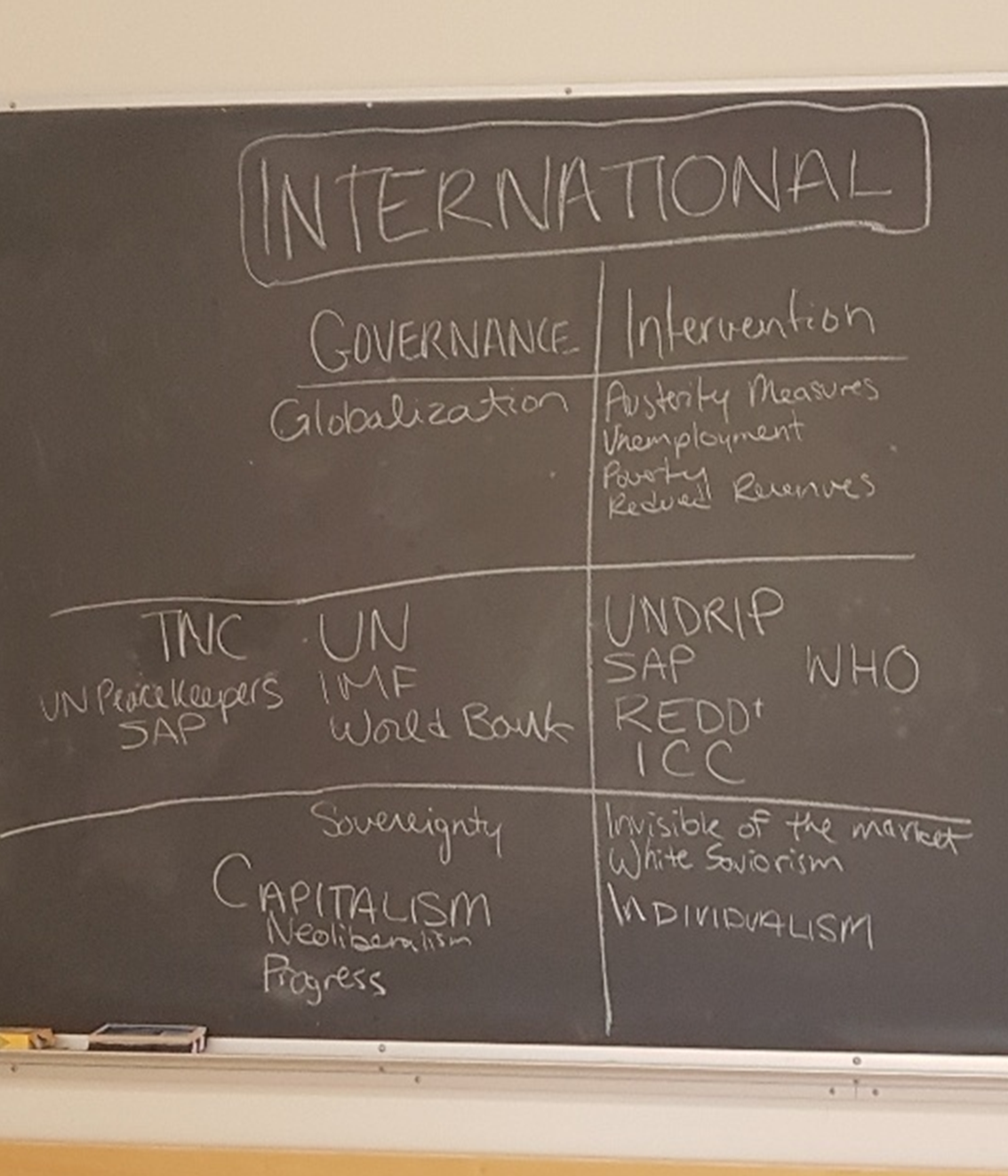
Interventions in Governance





Slides from “Interventions in Governance”

Two case studies of governance-based climate solutions
Nation (from “Solar Panels and Sisterhood” by Emilee Gilpin).

Brainstorming interventions in state, international, and alternative governance systems

Discussing governance in the alternative sphere, participants made note of the place-based/land-based nature of existing alternative governance structures. Participants also brainstormed existing movements that embody alternative governance practices. Though the group was able to identify impact-level and structure-level alternative governance mechanisms with ease, participants struggled to articulate the root cause ideologies behind alternative governance interventions.

Discussing state governance, participants noted that state actors are often implicated in racialized climate issues. Participants also discussed the failure of state interventions such as the Green New Deal to address root causes of racialized climate issues.

Please note: transnational corporation (TNC), structural adjustment program (SAP), United Nations (UN), International Monetary Fund (IMF), United Nations Declaration on the Rights of Indigenous Peoples (UNDRIP), World Health Organizations (WHO), International Criminal Court (ICC)
Participants noted that both alternative and international governance systems technically operate beyond the borders of nation-states, but state actors make national borders fluid for international governance programs while fortifying those same borders against the activities of alternative systems. Participants hypothesized that this is due to the alignment in root cause ideologies of state and international actors and the tension between root cause ideologies of state and alternative actors.
